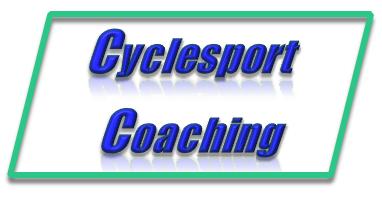Article

Personal Coaching and Training Information
for Cyclists of All Abilities
Training Resources
and Products
Should You Train With Intensity During the Offseason?
There is a common question asked this time of year regarding the amount of intense training a cyclist should do during the offseason. In the old days, like when I began racing back in the 20th Century, we took a couple months off after the racing season, then rode rollers in the winter, and then got out on the road on our fixed gear track bikes for long slow distance to rebuild fitness in the spring. This training approached mimicked what the Euro pros were doing at the time. But racing has changed over the past 35 years and so has training philosophy. One thing that has changed is the racing season is much longer now. The pro circuit runs from January through October. In Iowa, where I live, there are races almost every weekend of the year, between roller races, gravel road races, road races, cyclocross and moutain bike races. Another thing that has changed is that the level of competition has greatly improved. You just can’t afford to take time to get back into shape in the spring or you will be left behind. You need to maintain a fairly high level of fitness year round. At most, racers may take a few weeks of easy riding, called the Transition Phase, at the end of the competitive season before getting back into serious training again.
So while no one is advocating hanging up the bike after the competitive season is over, there is still some debate as to whether cyclists should concentrate on strictly low intensity endurance during the offseason or should the cyclist be maintaining some fairly high intensity training workouts throughout the year. Low intensity, long miles are important and necessary as they build endurance, increase capillaries in muscles, and enhance fat burning capability. These are important aspects of fitness for an endurance sport and therefore these types of rides are still essential to do. But the difference of opinion is whether cyclists should also be doing more intense threshold and even anaerobic workouts during the winter. My thinking has evolved over the years and I now agree that we should include some fairly intense workouts year round. The main reason we used to do a lot of long, slow distance riding in the spring was because we had lost fitness over the long winter off-season and we had to rebuild it in the spring, so we started out with a lot of base miles. Because we aren’t taking as much time off from training any more, we never really get very far out of shape, so we can maintain a higher level of fitness in the offseason. In fact, we need ongoing intense training to maintain this higher level of fitness.
The type of intense training you should be doing during the offseason is primarily threshold workouts, where you are doing intervals around or just under your lactate, or anaerobic, threshold. It’s also okay to throw in a few anaerobic workouts once in a while, too, just to keep the pipes cleaned out. The workouts you don’t need to be doing in the offseason are maximal efforts such as sprinting and short all-out intervals. These are best reserved for the racing season as you are building toward peak fitness.
I can’t think of a physiological reason why intense training can’t or shouldn’t be done year round. The main risk is on the mental side. You shouldn’t train so hard in the offseason that you are mentally burned out by the time spring comes around. If you can manage to train with intensity all year with enthusiasm, you should. You will maintain a high aerobic fitness base and be ready to add miles and intensity when spring comes around.
Coach David Ertl
David Ertl is a USA Cycling Level 1 (Elite) Coach and author or '101 Cycling Workouts'. He is the JDRF Coach for the Ride to Cure Diabetes, the lead coach with the DMCC/DMOS/Bike World Race Team, and coaches individual cyclists. He is also an NSCA certified Personal Trainer. He can be reached at Coach@CyclesportCoaching.com.
www.CyclesportCoaching.com www.CyclesportCoaching.Blogspot.com
Download this article as a .pdf file